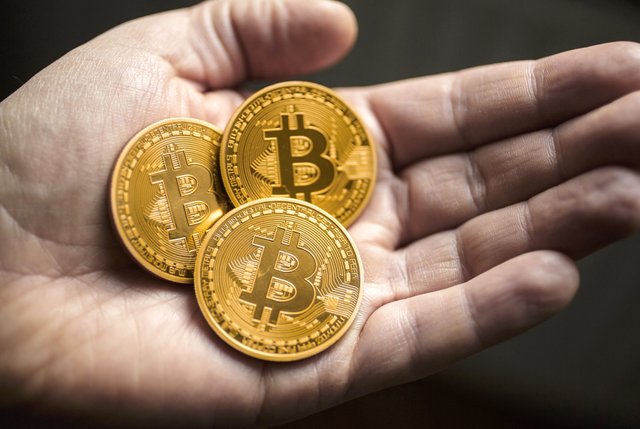Exchange are not Wallet. How to store your Bitcoins and reduce the risk of being stolen.

The bitcoin users have learned a valuable lesson, after the Bitifinex was hacked in early August, and lost nearly 120,000 bitcoins from your customers. https://steemit.com/money/@cryptoeasy/the-new-chapter-of-the-bitfinex-novel-what-do-you-think-about-their-decision-to-be-just-or-not-what-will-happen-now
Do not keep large volumes in custody brokers.
Store bitcoins in a connected Internet portfolio, also called hot wallet is fundamentally dangerous because of possible vulnerabilities in the broker's security systems. Every company that makes storage in hot wallet becomes a potential target for hackers because to settle purchase and sell orders instantly, it becomes necessary to store large amounts of online bitcoin, concentrating risk and increasing the chances of attack.
The only option for traders is usually to diversify risk and use various exchanges. In addition to increasing attention for the monitoring, auditing, insurance and regulatory issues involving the exchange business. Unfortunately, there is no other way of storing the bitcoins that you are operating. Please be aware of the risks of the counterparty you are taking. In these cases, it is advisable to leave in exchange only the funds that you are able to use for trading.
If you are not a trader, keep your funds out of Exchanges.
The most appropriate way to store large volumes of bitcoin is to keep them in a paper wallet or some hardware wallet.
The paper portfolios contain the cryptographic key that gives access to your bitcoins and should be kept in a safe place, as if you were hiding money under the mattress. Already the storage hardware function as a kind of hard disk to keep any cryptocurrency. There are several options on the market and the most used are Ledger Wallet and Trezor.
The expert and author of "Mastering Bitcoin," Andreas Antonopoulos, it says quite concerned about the large number of people who leave their money in exchanges. See what he says;
"My first goal is to ensure that none of the simple users who only need to exchange currencies are using custody exchanges and leaving the money there. It's risky, it is unnecessary and these simple users are those who have less ability to understand and manage the risks that are involved to guard digital assets. Therefore, there is the slogan: your keys, your bitcoins. Without your keys, you do not own your bitcoins"
OTC Markets
If you are an investor or company that needs to move a large sum of bitcoins, the best way to do this is with a operation using the OTC markets,to avoid the risks of depositing these funds in a exchange. In the OTC markets the business model exchanges are done immediately, which allows the user to liquidate its operations without keeping resources in the brokerage.
If you are not a trader, keep your funds out of Exchanges.
I really think more people need to understand this. At least new users. There have been several incidents since Gox that show this isn't well understood.
Here's an easy link to secure cold storage.
https://www.weusecoins.com/bitcoin-cold-storage-guide/
An exchange is definitely not an wallet. But not everyone understand that.